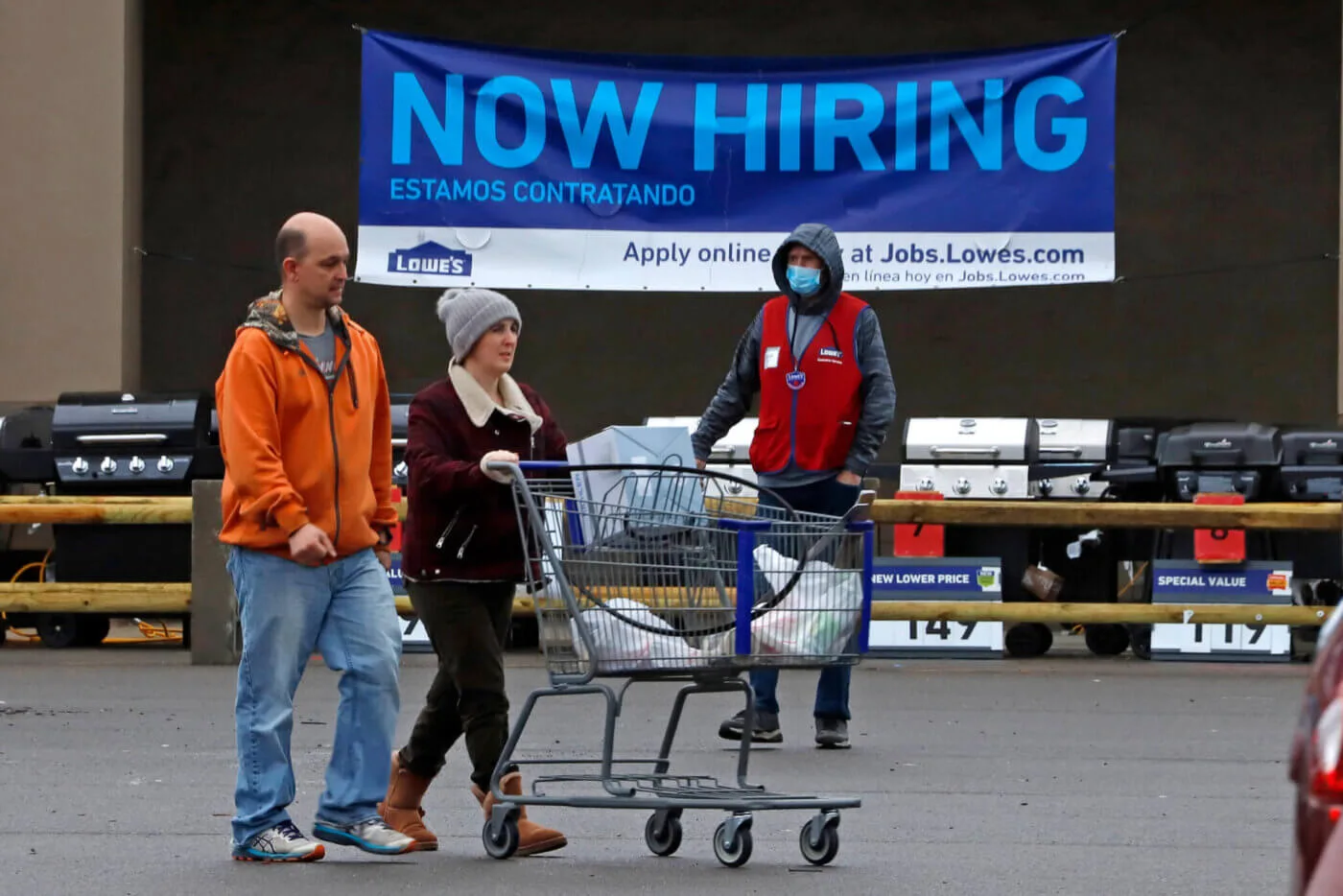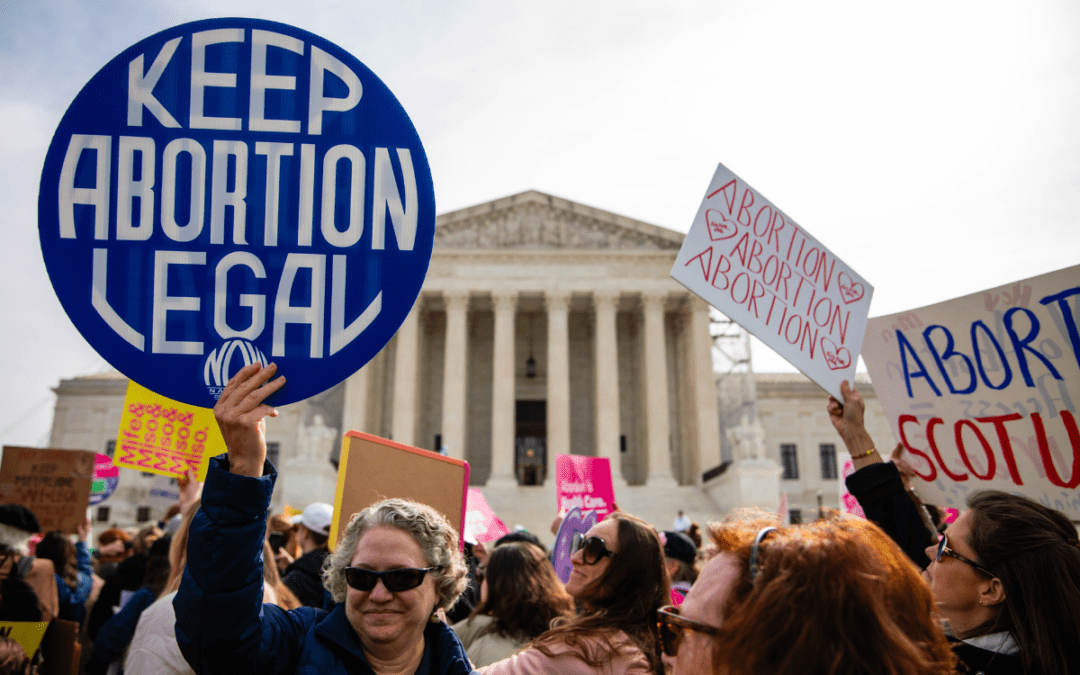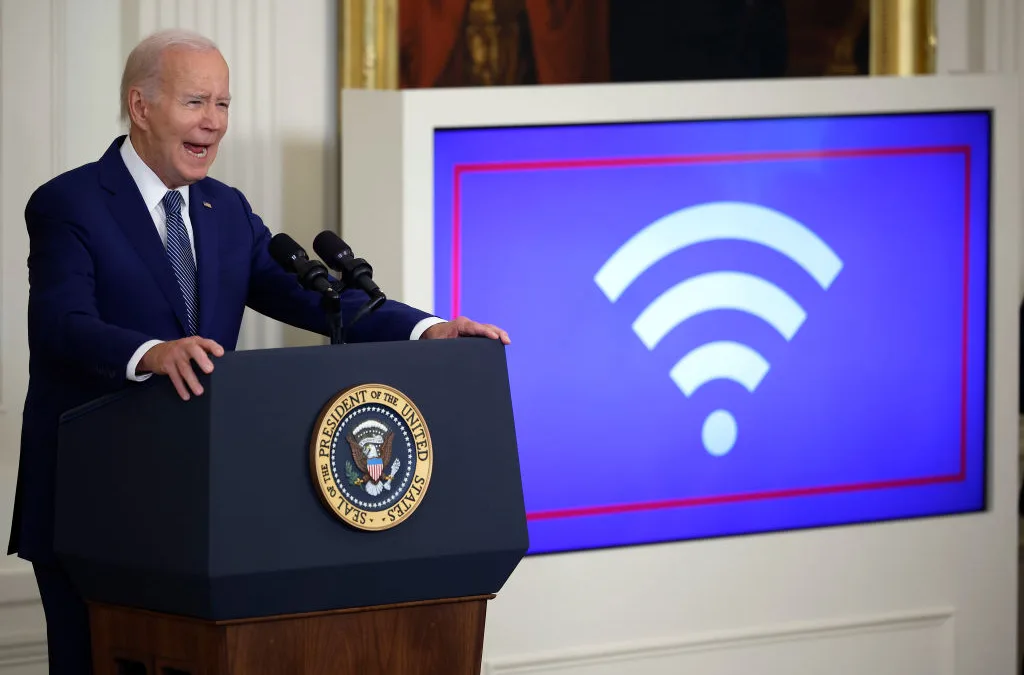
A Lowe's employee walks through the parking lot as shoppers walk to their car after shopping at a store in Robinson Township, Allegheny County, on Wednesday, May 6, 2020. (AP Photo/Gene J. Puskar)
Elected officials, advocates, economists, and others voiced their support for increasing the minimum wage in Pennsylvania.
HARRISBURG — In Pennsylvania, where the minimum wage is $7.25 an hour, one out of every 8 people lives in poverty.
“It’s time we break the cycle of poverty in Pennsylvania and make an investment in our economic future,” said state Sen. Christine Tartaglione, D-Philadelphia, during a hearing about raising the minimum wage in the commonwealth.
The Pennsylvania Senate Democratic Policy Committee hosted the virtual hearing on the Martin Luther King Jr. Day of Service to honor the civil rights leader’s legacy of fighting for workers and economic justice.
“It is unacceptable that Pennsylvania continues to allow its minimum wage to be the poverty wage of $7.25 an hour,” said state Sen. Art Haywood, D-Montgomery/Philadelphia. “We hold this hearing to continue the work that Dr. King started demanding dignity and respect for all workers, and that starts by paying workers a living wage.”
Alissa Barron-Menza, vice president of Business for a Fair Minimum Wage, said raising the minimum wage is a smart economic policy and the shared recovery tool that is sorely needed right now.
RELATED: A Minimum Wage Increase Could Pull Millions Out Of Poverty. The GOP-Led Senate Won’t Even Consider It.
The minimum wage was first introduced in 1938 during the Great Depression and was seen as essential to economic recovery, Barron-Menza said. It was established to ensure workers were paid enough to support their families.
Raising the minimum wage would level the playing field for businesses, Barron-Menza said. It would also strengthen the local workforce, increase productivity, and reduce employee turnover.
It also puts money in the pockets of the people who most need to spend it.
Low- and mid-level paid workers are the largest group of consumers contributing to the economy, said Jacqui Rogers with the Bucks County Women’s Advocacy Coalition. When they have more purchasing power, the economy improves.
A minimum wage increase will go right back into the economy, said Morris Pearl, chairperson of Patriotic Millionaires, a group of high-net worth investors and business leaders “focused on building a more stable and prosperous nation.”
“Businesses make money when they have customers who can spend money,” Pearl said. “How is someone who can’t afford housing and food going to spend money at their local businesses?”
Pennsylvania’s Minimum Wage Lags Behind Other States
The state Legislature last raised the minimum wage over 14 years ago.
Congress set the federal minimum wage at $7.25 per hour in 2009.
Each state’s legislature may set a minimum wage higher than the federal rate. Currently, 29 states and the District of Columbia have minimum wages above the federal minimum wage of $7.25 per hour, including all six states bordering Pennsylvania.
A state Senate bill that would have raised the minimum wage to $8 per hour, with $0.50 increases every six months until it reached $9.50 in 2022, died last year when the majority-GOP state House of Representatives did not take action on it before the legislative term ended. The state Senate had passed the bill, which was introduced by Tartaglione, by a vote of 42-7. The bill was the closest the Legislature has come to approving a minimum wage increase in years.
“A fair, equitable, and family-sustaining minimum wage benefits all Pennsylvanians,” Tartaglione said. “Many other states and cities have recognized the benefits and with each passing year Pennsylvania falls behind other states.”
RELATED: We Did the Math. It’s Nearly Impossible to Survive on Minimum Wage in Pennsylvania.
Tartaglione plans to re-introduce legislation that will immediately raise Pennsylvania’s minimum wage to $12 per hour, with incremental increases each year until it reaches $15 per hour by 2027.
Pearl said most business owners are in favor of raising the minimum wage. Gene Barr, president and CEO of the PA Chamber of Business and Industry, disagreed.
Opposition to a Minimum Wage Increase
Barr said his organization does not believe that is the most effective way to drive assistance. He argues it would hurt small businesses, lead to more automation on the job, result in job losses across the state, and hurt workers with limited skill sets-the very group it should be helping.
“We’re not denying that with a minimum wage increase some will get a raise,” Barr said. “But others will lose working hours, jobs, and employment opportunities. These policies make it more likely that automated services come into play, further limiting opportunities for those who need it.”
Reducing barriers to employment and expanding an Earned Income Tax Credit (EITC) are better solutions, Barr said.
The job losses Barr mentioned are actually the consolidation of multiple jobs into one, Barron-Menza said. With an increase in the minimum wage, she said, people who are working multiple jobs just to make ends meet won’t have to anymore.
Rogers said the pandemic has shined a light on how important minimum-wage workers are, many of whom are on the front line as essential workers in grocery stores, childcare centers, retail stores, and more. Their lives are worth more than $7.25 an hour, she said.
Who Would Benefit From a Minimum Wage Increase
Those who would benefit most from an increase are women and people of color.
Sixty-one percent of those in minimum wage jobs are women and 27% are minorities, said Kadida Kenner, Director of Campaigns at the PA Budget and Policy Center.
Raising the minimum wage is essential to ending the gender and racial wage gaps, said William Spriggs, professor of Economics at Howard University and chief economist at the AFL-CIO.
RELATED: The Pennsylvania Workers Barely Scraping by on an ‘Offensive’ Base Wage of $2.83 Per Hour
The subminimum wage pays people less in the service industry—$2.83 an hour in Pennsylvania for restaurant workers—and is also rooted in racism, Spriggs said.
“Employers have market power,” Spriggs said. “It is the rule of the government to return fairness to this equation. It is up to the government to make sure we stay within that moral confine.”
Politics

How Project 2025 aims to ban abortion in Pennsylvania
Former president Donald Trump said abortion was a state’s rights issue recently, but conservative organizations, under the banner “Project 2025,”...

736,000 PA households could lose crucial help on their internet bills
Time is running out for the Affordable Connectivity Program, which provides low-cost high speed internet access for over 736,000 Pennsylvania...

What to know about Trump’s legal issues
Over the past year, former president Donald Trump has become the center of not one, not two, not three, but four criminal investigations, at both...
Local News

Conjoined twins from Berks County die at age 62
Conjoined twins Lori and George Schappell, who pursued separate careers, interests and relationships during lives that defied medical expectations,...

Railroad agrees to $600 million settlement for fiery Ohio derailment, residents fear it’s not enough
Norfolk Southern has agreed to pay $600 million in a class-action lawsuit settlement for a fiery train derailment in February 2023 in eastern Ohio,...






